Your trailer is only as good as the place you store it. This simple saying highlights just how crucial it is to find the right trailer storage solution.
Imagine you’ve just purchased a new camper trailer or a boat storage, and you’re already planning your next adventure.
But then comes the inevitable question: where do you store it when it's not in use?
According to recent studies, nearly 9 million RV and boat storage trailers are registered in the United States, as millions of Americans rely on them for recreational and practical purposes.
As the number of trailers continues to grow, so does the demand for quality trailer storage facilities.
It doesn’t matter if you are searching for secure storage areas near me or exploring options for long-term trailer storage; the right place can make all the difference.
In this guide, we will cover everything about trailer storage, including boat trailer storage and RV storage solutions, and offer tips for finding storage facilities near you.
What Is Trailer Storage?
Trailer storage refers to finding a secure and reliable location to store your trailer when it's not in use. A good storage option helps protect your trailer from weather damage, theft, pests, and wear over time.
When most people think of trailer storage, they imagine a secure parking spot. However, there are many options available, such as indoor RV storage, boat storage facilities, or even self-storage units that can accommodate various trailer types.
The best storage choice depends on your trailer size, your budget, and how long you plan to store it. Some people prefer using a nearby storage facility, while others might look for RV and boat storage or camper storage near me for added convenience and protection.

Need storage solutions during your move? Explore our comprehensive storage guide.
Types of Trailer Storage Options
Here’s where the decision-making starts! Let’s look at the different types of trailer storage available:
Outdoor Trailer Storage
If you're looking for the most affordable option, outdoor trailer storage is your go-to. This involves parking your trailer in an open lot or designated area where it is exposed to the elements.
While outdoor storage is often the least expensive, it offers little protection from the sun, rain, or snow. It’s ideal for short-term storage if you’re not worried about your trailer being exposed to weather or potential theft.
Average Cost: $30 - $100 per month
Covered Trailer Storage
For a bit more protection, covered trailer storage offers shelter for your trailer without the full enclosure. Your trailer will still be parked outside but shielded from direct sunlight, rain, and snow. This is a great option for anyone looking for a balance between affordability and protection.
Average Cost: $100 - $300 per month
Enclosed Trailer Storage
This is the ultimate solution for maximum protection: enclosed trailer storage. Your trailer will be stored inside a fully enclosed building, away from the elements and any potential security risks.
Enclosed storage is more expensive but offers the best security and preservation. Enclosed storage is highly recommended for high-value trailers, such as camper trailers or boat trailers.
Average Cost: $300 - $500 per month
Secure Trailer Parking
Another option is secure trailer parking, a facility designed specifically for parking trailers, which offers high security with features like gated access, surveillance cameras, and on-site staff.
Average Cost: $50 - $150 per month
Long-Term vs. Short-Term Trailer Storage
When choosing trailer storage, it's important to decide if you need it for a short time or long term. Both options offer benefits, but your choice depends on your needs, budget, and how often you use your trailer.
Short-Term Trailer Storage
Short-term storage is great if you're only storing your trailer for a few days or weeks. It’s ideal for travel breaks, seasonal use, or quick moves.
Many people search for parking storage near me or storage rentals near me when they need a place to park their trailer temporarily. Short-term options are often flexible and don’t require a long contract.
Long-Term Trailer Storage
Long-term storage is best if you won’t be using your trailer for several months or more. It offers more protection, especially when choosing indoor RV storage or boat storage.
This helps protect your trailer from harsh weather and keeps it in better shape over time. You can also search for storage facilities near me or self-storage near me that provide security for long-term use in your area.
Whether you choose short-term or long-term, always compare storage unit prices and pick one that fits your needs.
Quick Comparison
| Feature | Short-Term Storage | Long-Term Storage |
|---|---|---|
| Duration | A few days to a few weeks | Several months or longer |
| Best For | Seasonal travel, quick trips, temporary needs | Off-season use, long vacations, infrequent use |
| Common Options | Parking storage near me, storage rentals near me | Indoor RV storage near me, indoor boat storage near me |
| Cost | Typically lower overall | May offer better monthly rates for longer stays |
| Protection | Basic (open lots, minimal coverage) | Higher (indoor units, covered, climate-controlled) |
| Flexibility | More flexible, no long contracts | May require longer-term agreements |
| Security Level | Varies—may have limited surveillance | Usually higher—cameras, gated access |
| Storage Type | Outdoor lots, uncovered spaces | Self-storage units, RV and boat storage options |
Where to Find Trailer Storage Near You
If you need a safe place to store your trailer, there are several ways to find storage options nearby. Whether you're storing an RV, camper, boat, or utility trailer, the process is simple when you know what to look for and where to start.
Use Online Search Tools
The easiest way to begin is with a quick online search. Go to Google and type in exactly what you’re looking for, like “trailer storage near me” or “RV storage near me.” This will bring up a list of nearby facilities, with maps, reviews, photos, and contact info.
Look for storage listings that show:
- The type of trailers they accept (RV, camper, boat, etc.)
- Whether they offer indoor or outdoor storage
- Size options and monthly pricing
- Access hours and security features
This helps you quickly compare places without having to visit each one.
Explore Local Storage Facilities
Not all storage places advertise online. You can also find trailer storage by checking:
- Self-storage facilities in your area
- Parking lots or commercial yards that rent out space
- RV dealerships or repair shops with extra storage space
- Marinas (especially if you're storing a boat trailer)
These places may not always appear on Google, so it's worth calling around or checking local bulletin boards and Facebook groups.
Ask the Right Questions Before You Book
Once you’ve found a few options, it’s important to ask the right questions so you don’t run into problems later. Here’s what to find out:
- Do they have space for the size of your trailer?
- Is it indoor, covered, or open-air storage?
- What security features are in place (gates, cameras, on-site staff)?
- Are there restrictions on how often or when you can access your trailer?
- Is the area clean, paved, and easy to drive in and out of?
-
What are the monthly rates and contract terms?
Use Word of Mouth
Ask people you trust, such as friends, neighbors, or even local mechanics, if they know of good storage spots. Sometimes, the best places aren't heavily advertised, and personal referrals can lead to hidden gems that are both affordable and reliable.
Consider What You Need Most
Before choosing a storage space, think about what matters most to you:
- If you want full weather protection, look for indoor or covered storage.
- If budget is your main concern, outdoor storage is often cheaper.
- If you travel often, choose a place with 24/7 access and flexible hours.
The right facility will depend on your trailer type, how long you plan to store it, and how often you need to access it.

Looking for reliable moving services? Check out our list of top-rated moving companies in your area.
How Much Does Trailer Storage Cost?
Now your next concern must be: “How much does trailer storage cost?” Let's break it down for you, because the answer isn't as simple as a flat rate.
In general, trailer storage prices can range from as low as $30 a month for outdoor trailer storage to well over $500 per month for enclosed trailer storage.
But let’s take a closer look at all the elements that influence these prices.
Location
The first thing you should know is that your location plays a huge role in the cost of storage.
For example, if you live in a big city like New York, Los Angeles, or Miami, you can expect to pay a premium for storage.
Size of the Trailer
The size of your trailer matters, too. The larger your trailer, the more space it will occupy; thus, the higher the cost.
For instance, storing a small utility trailer will cost less than storing a large camper trailer or boat trailer. Most storage facilities charge based on the length of the trailer.
Length of Storage
Do you need long-term trailer storage, or are you just storing it temporarily? The time you need to store your trailer will also impact the cost.
Many facilities offer discounts for long-term rentals, so if you plan to store your trailer for several months, you may be able to secure a better deal.

Wondering how to pack your trailer effectively? Find it here!
Breakdown of Trailer Storage Costs
Now that you have a better idea of the factors that affect storage pricing, let's take a look at a more detailed cost breakdown.
| Type of Storage | Average Monthly Cost | Description |
|---|---|---|
| Outdoor Trailer Storage | $30 - $100 | The most affordable option. Trailer is exposed to weather and elements. |
| Covered Trailer Storage | $100 - $300 | Offers shelter from rain and sun but is still open to the environment. |
| Enclosed Trailer Storage | $300 - $500+ | Best option for protection. Fully enclosed, secure, and climate-controlled. |
| Secure Trailer Parking | $50 - $150 | Security features like cameras and gated access. |
| RV Storage Solutions | $50 - $200 | For larger trailers like RVs, with added features such as hookups. |
| Boat Trailer Storage | $50 - $300 | Similar to RV storage, prices depend on size and location. |
| Long-Term Trailer Storage | $30 - $250 | Discounts for long-term storage, with options for both indoor and outdoor. |
| Electricity Hookup | $10 - $50 | Additional fee for power if you need electricity for your trailer. |
| Water Hookup | $20 - $50 | Water connection for cleaning or flushing purposes. |
| Dump Station | $10 - $25 | Some RV or camper facilities offer dump stations for waste removal. |

Ready for a seamless moving experience? Get a free moving estimate today and save on your trailer storage.
How to Choose the Right Trailer Storage
Not all trailer storage options are the same. Choosing the right one depends on what kind of trailer you have, how often you use it, and what level of protection you need.
Here are the most important things to consider before making your decision:
Know What Type of Storage You Need
There are a few main types of trailer storage:
- Outdoor storage– the most affordable option, but offers no protection from weather.
- Covered storage– provides a roof over your trailer to protect it from sun, rain, or snow.
- Indoor storage– fully enclosed spaces, often climate-controlled, for maximum protection.
If you're storing your trailer long-term or in a harsh climate, indoor RV storage or indoor boat storage is a smart choice. For short-term or mild weather, outdoor storage may be enough.
Check the Size and Accessibility
Make sure the storage facility has space that fits the size of your trailer. Some trailers need extra room to turn, back in, or connect to a vehicle.
Also consider:
- Is the space easy to drive in and out of?
- Can you access it 24/7, or only during certain hours?
- Is the entry gate wide enough for your trailer?
Look for Strong Security Features
Your trailer is valuable, and it should be stored in a safe place. When comparing facilities, ask about:
- Gated entry and keycode access
- Security cameras and lighting
- On-site staff or security patrols
- Fencing and locks
Compare Prices and Contracts
Storage costs can vary a lot depending on your location and the type of storage you choose. Some facilities offer discounts for long-term contracts, while others allow flexible month-to-month rentals.
Before you commit, make sure you understand:
- Monthly storage unit prices
- Deposit requirements or hidden fees
- Cancellation or change policies
Location Matters
It’s usually more convenient to store your trailer close to home or near your travel routes. Use search terms like storage facility near me, trailer storage near me, or RV and boat storage near me to find options in your area. Just be sure to balance convenience with cost and security.
Read Reviews and Visit the Facility
Don’t book a storage space without doing some research. Read online reviews, check photos, and, if possible, visit the facility in person. This helps you avoid surprises and gives you a chance to ask questions.
How to Protect Your Trailer During Storage
Whether you’re using RV storage, an outdoor lot, or a general storage unit, these tips will help protect your trailer from weather, damage, and pests.
Use a High-Quality Trailer Cover: A weather-resistant cover shields your trailer from the elements, including UV rays, rain, and dirt, helping to preserve both its exterior and interior.
Use Tire Covers: Tire covers block the sun and help maintain proper tire pressure, protecting your trailer tires from UV damage and flat spots.
Keep the Trailer Clean: Before storing your trailer, clean it thoroughly to remove dirt, grime, and salt that can lead to corrosion. Apply wax for added protection.
Check and Maintain the Battery: Disconnect and store the battery in a dry place to prevent drainage, ensuring it’s ready for use when you need it again.
Pest Control Measures: Use repellents and traps, and seal any small openings to prevent pests, such as rodents, from making a home in your trailer during storage.
Common Trailer Storage Mistakes to Avoid
Even with the best storage plans, small mistakes can lead to big problems. Here are some common trailer storage mistakes people make, and how to avoid them.
Not Cleaning the Trailer Before Storage
Leaving dirt, salt, food crumbs, or moisture inside your trailer can lead to corrosion, bad smells, mold, or pest problems. Always clean the interior and exterior before storing.
Forgetting to Cover the Trailer
Many people skip using a proper trailer cover. But leaving your trailer exposed to sun, rain, snow, or bird droppings can cause paint damage, roof leaks, and fading. Use a breathable, weather-resistant cover.
Ignoring Tire Protection
Tires can crack, flatten, or lose pressure if left exposed or sitting too long in one position. Always cover your tires and check their pressure before and after storage.
Skipping Battery Maintenance
Leaving the battery connected while the trailer is in storage can cause it to drain or die completely. Disconnect the battery and store it in a cool, dry place, especially if you plan to use long-term storage or self-storage units.
Not Sealing Entry Points
Rodents and insects love quiet trailers. If small holes or vents are left open, they’ll move right in. Use pest repellents and seal gaps with mesh, plugs, or tape, especially if your trailer is in an outdoor storage facility.



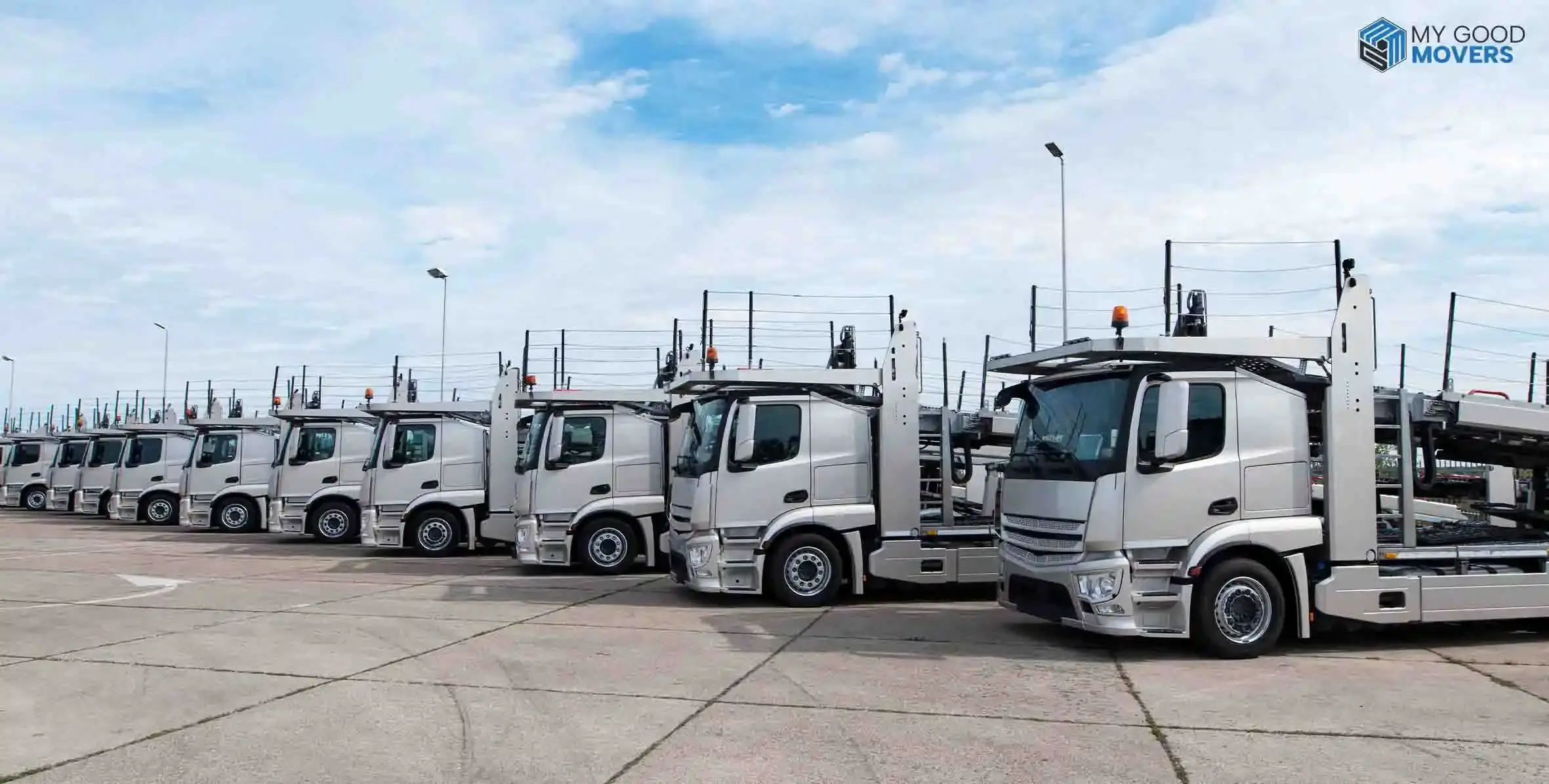








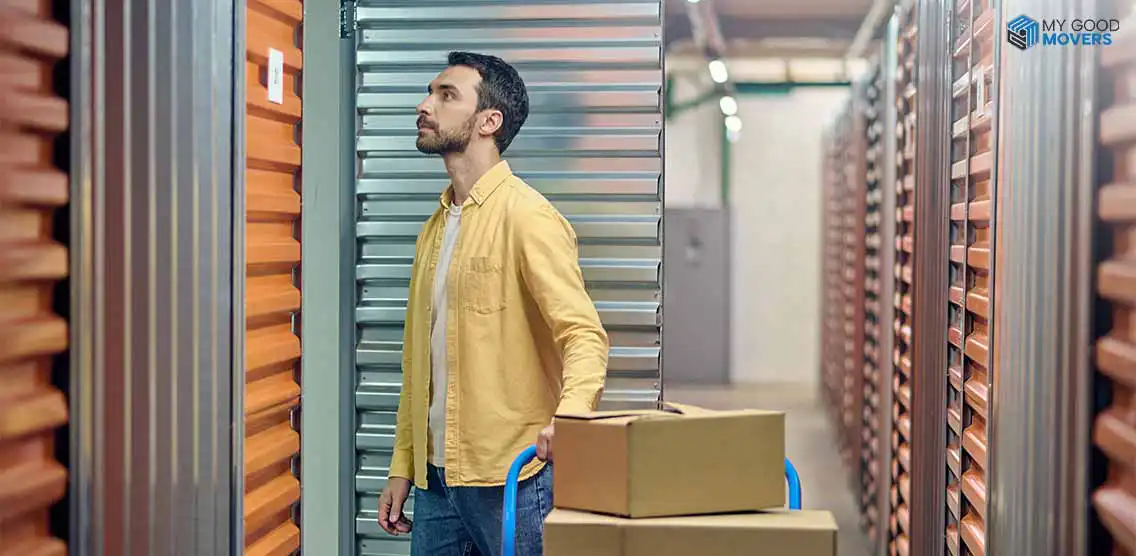


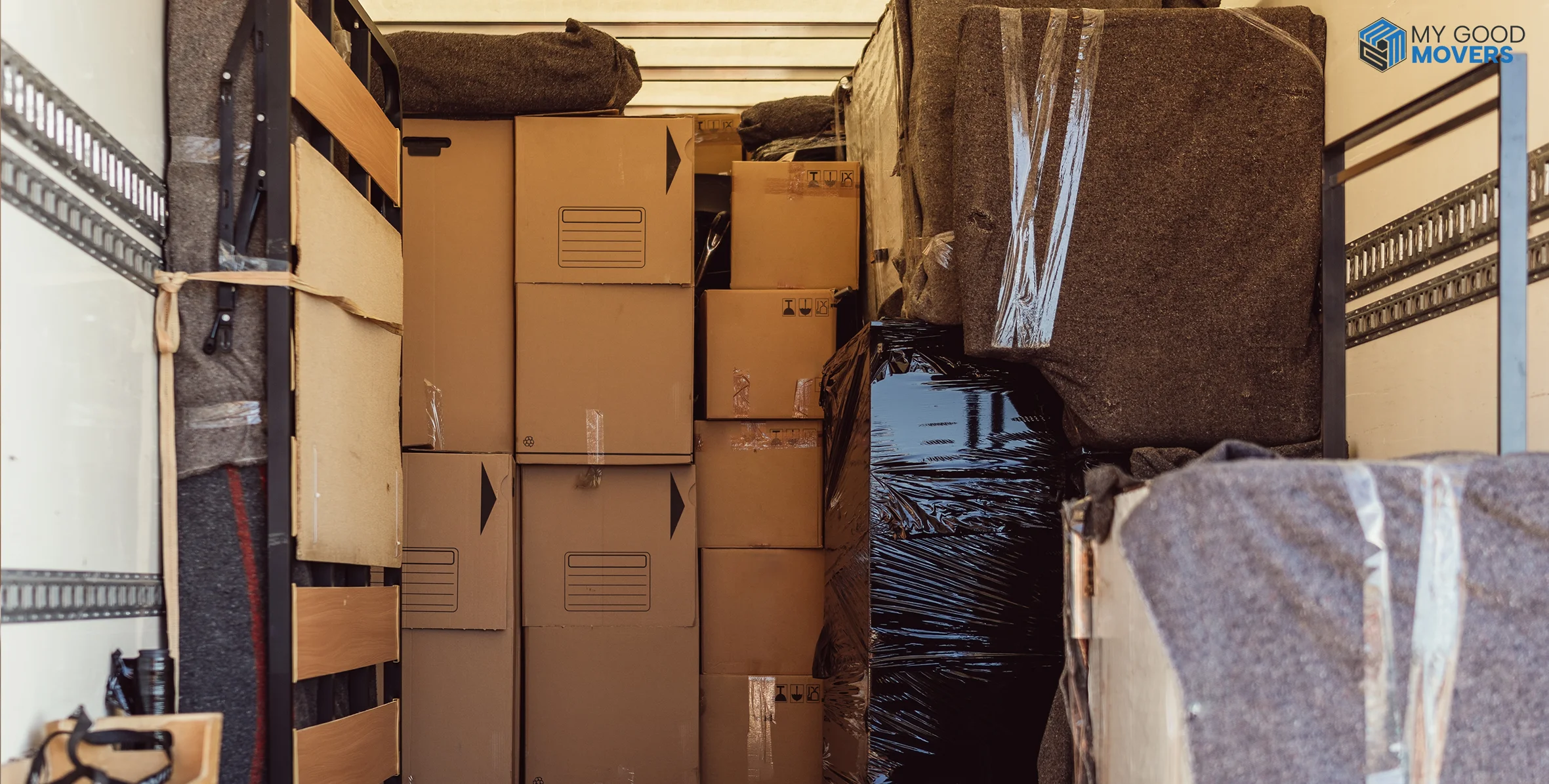
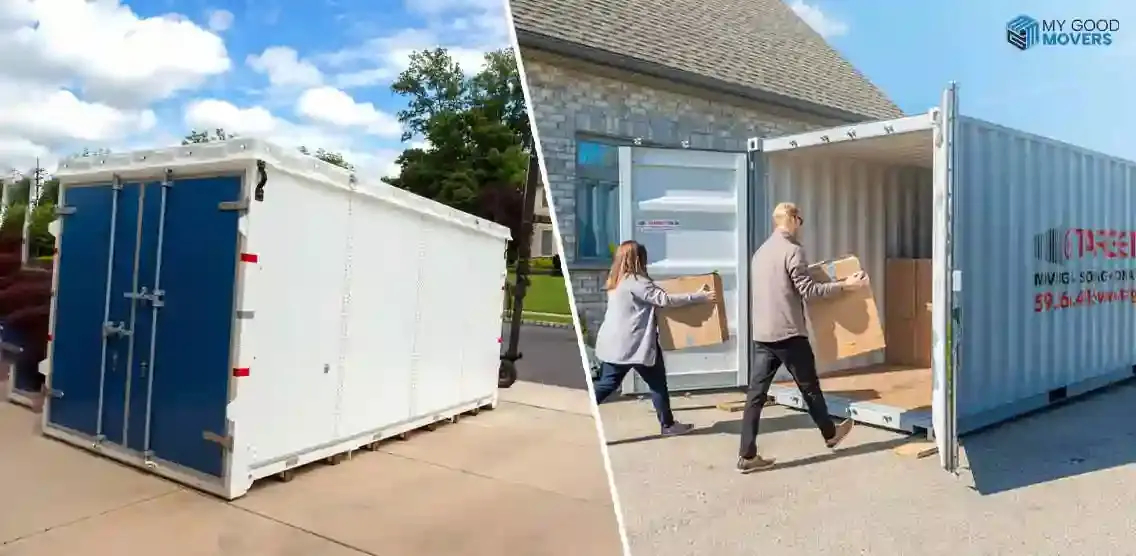


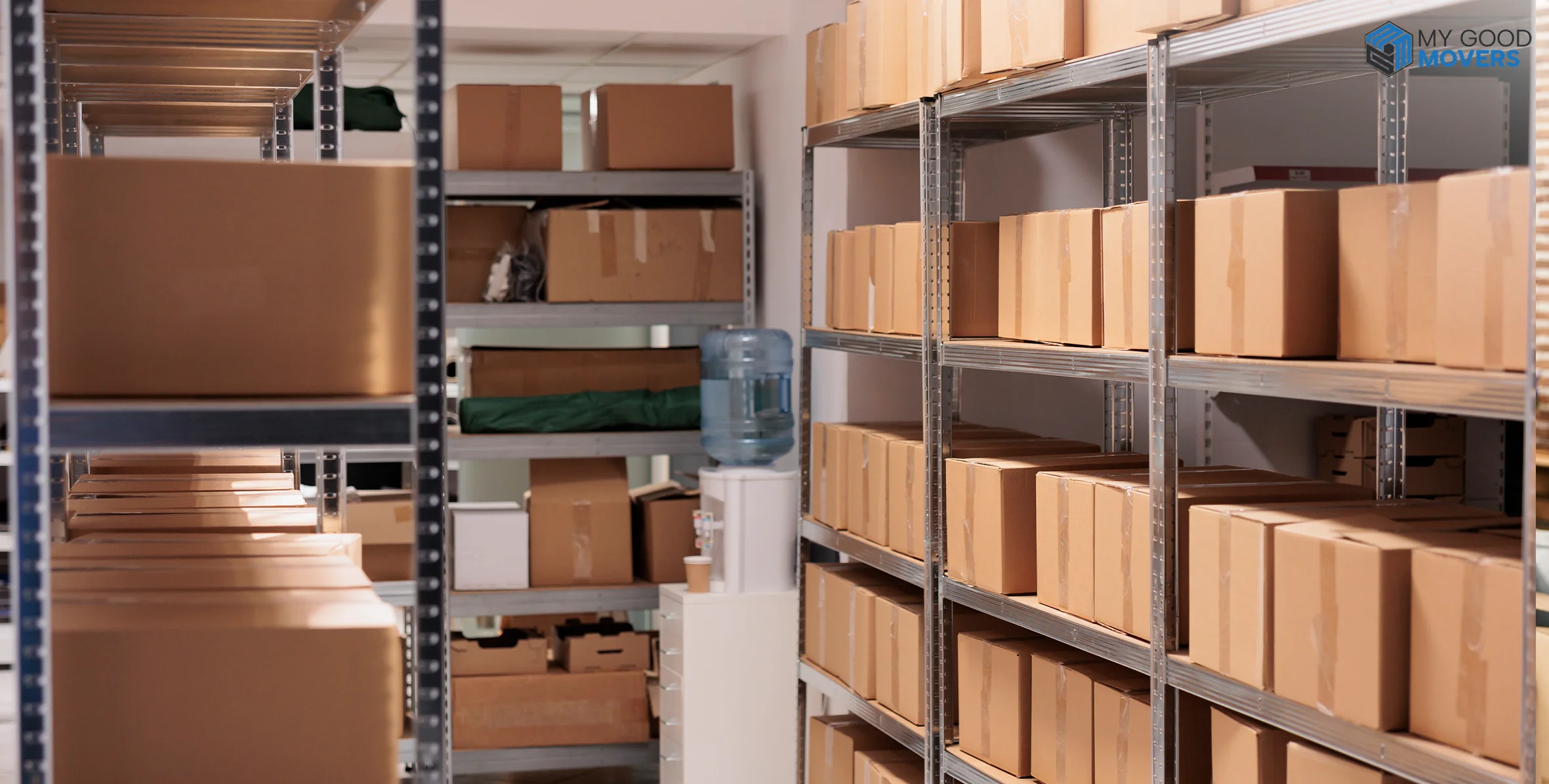





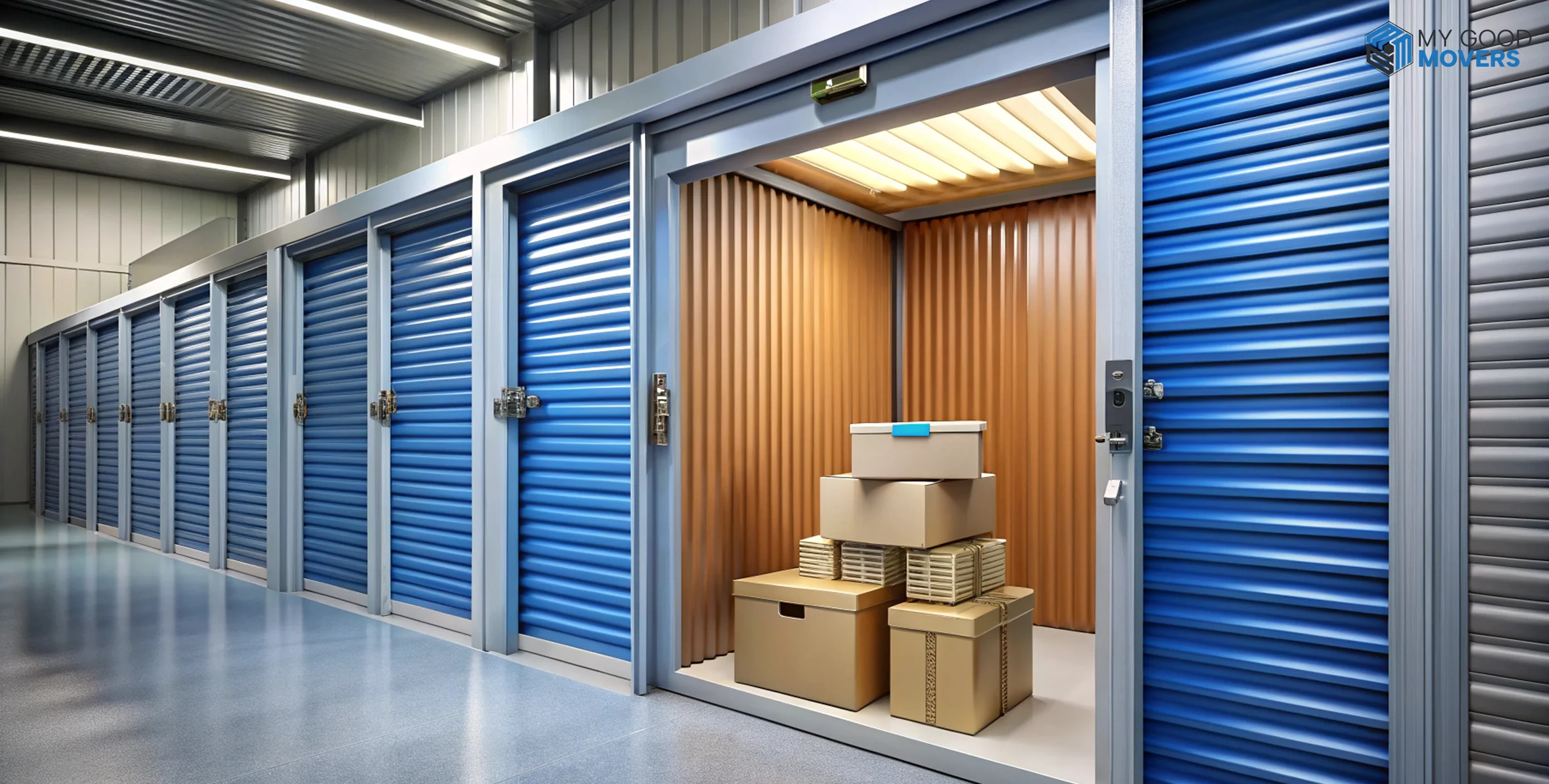
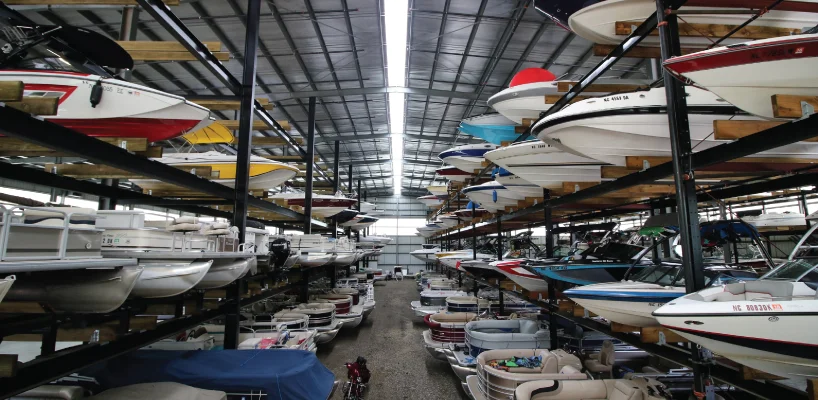

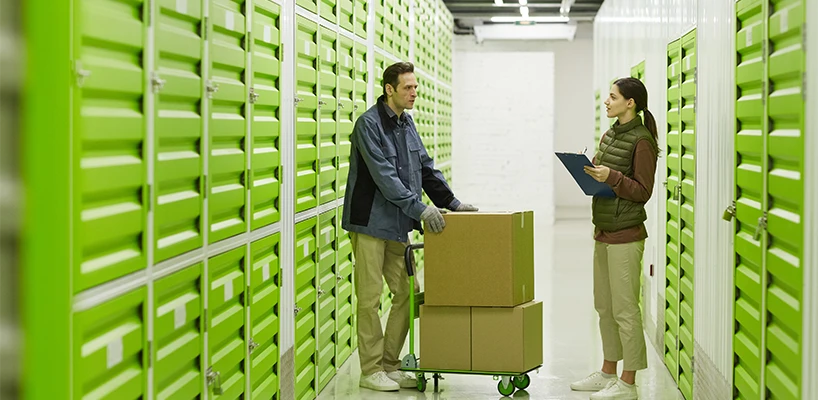
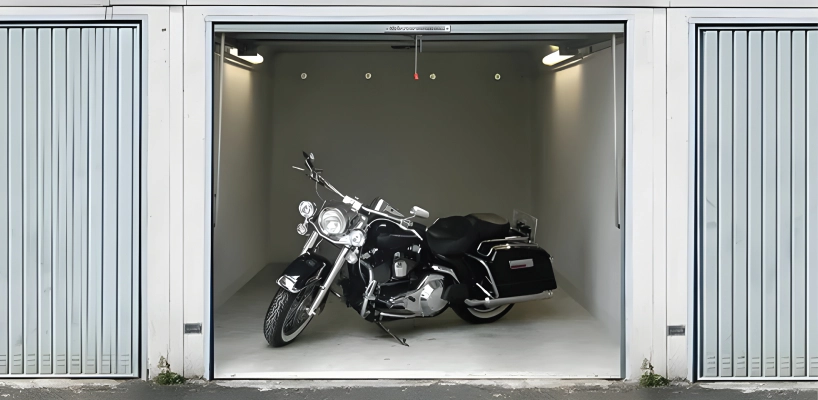

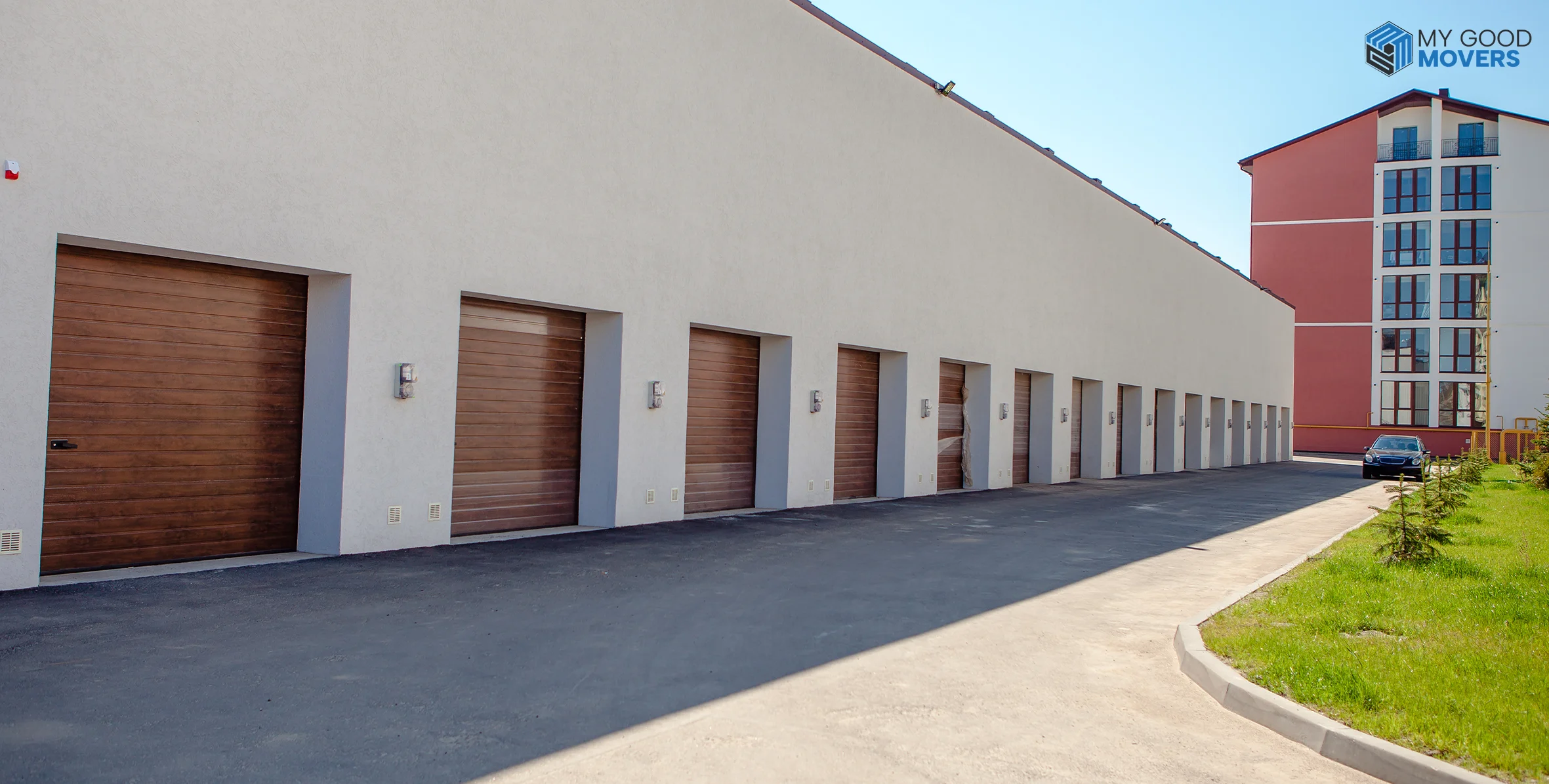
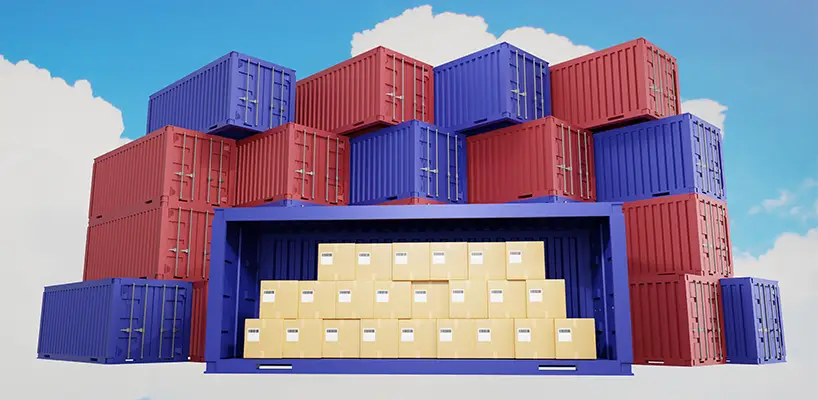
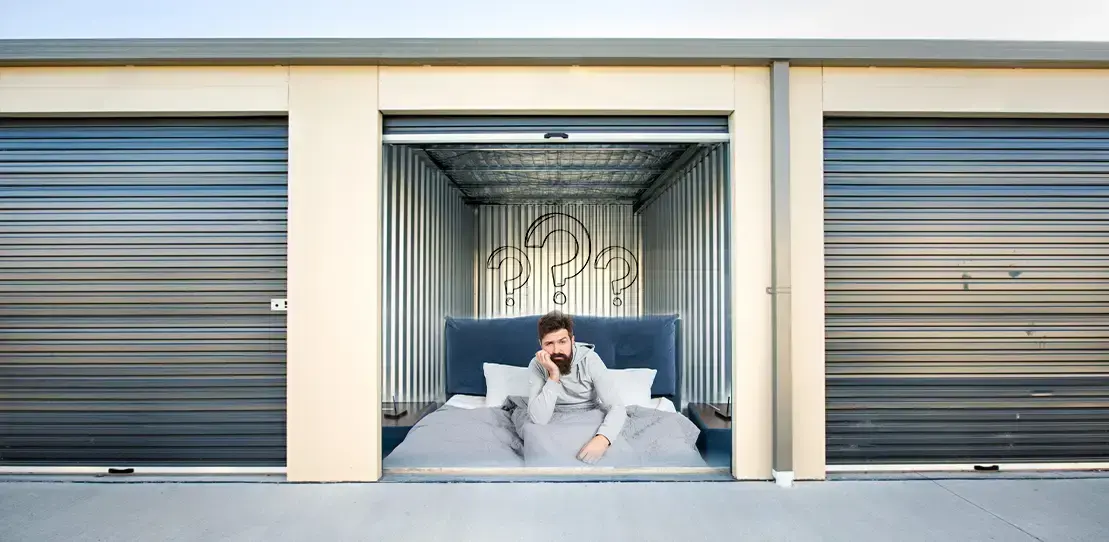

 (239) 799–6077
(239) 799–6077